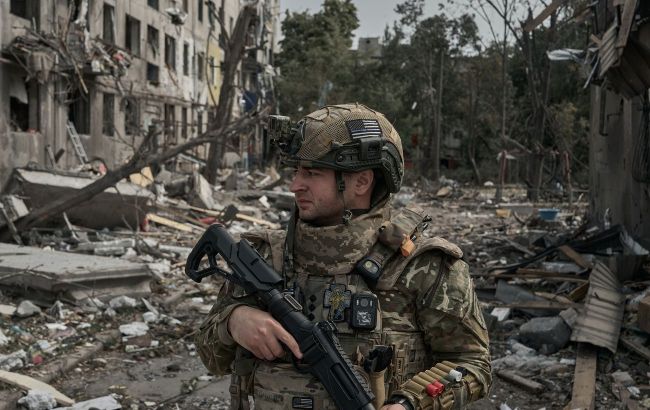Tough winter ahead: How Ukraine plans to survive energy hits and pressure on front
 Illustrative photo: Ukraine faces a tough winter (GettyImages)
Illustrative photo: Ukraine faces a tough winter (GettyImages)
Experts and officials agree that the baseline scenario for the next 4–6 months is a continuation of the war in its current form.
According to the article, during this period, Ukraine must be ready to confront several interconnected threats at once — from escalation in Donbas to strikes on the energy sector and growing social tension.
In particular, maintaining international, primarily American, support (to avoid ultimatums from US President Donald Trump); holding the front line, especially in Donbas; ensuring the country’s functioning amid intensified attacks on the energy system; and containing public discontent caused by those same attacks and resulting everyday hardships.
International support
Losing or weakening international support, especially from the United States, remains one of Kyiv's key risks. Political uncertainty abroad continues to be a critical factor: Ukraine must preserve its partners’ commitment to avoid external pressure or ultimatums.
"Lately, Trump seems more receptive to the arguments of Secretary of State Marco Rubio, often labeled "anti-Russian" and "pro-Ukrainian", the article says.
Escalation at the front
Russian leader Vladimir Putin is proposing a so-called “compromise” — to settle for the capture of the Donetsk and Luhansk regions instead of all four oblasts. However, his true goal is to destabilize Ukraine from within.
Moscow believes this can be achieved regardless of whether Kyiv accepts its ultimatum. Either outcome could provoke public outrage: if Kyiv agrees, society will be furious at concessions; if it continues fighting and suffers losses, the frustration may be the same.
"The epicenter of fighting this winter remains the Donetsk region, which the invading army reportedly plans to fully capture by the end of February. The biggest threat now looms over the city of Pokrovsk, where urban combat is already underway," the article notes.
If Russian forces succeed near Pokrovsk, RBC-Ukraine sources say they will likely shift their focus to the Kramatorsk–Kostiantynivka agglomeration. To do so, they would intensify pressure on Lyman, Siversk, and Kostiantynivka, and would almost certainly attempt another assault on Kupiansk.
Strikes on the energy system
According to most of RBC-Ukraine's interlocutors, Russia's main objective is to stir discontent among ordinary Ukrainians, hoping they will demand that the government make peace at any cost.
But Putin is unlikely to succeed. Frustration over darkness, cold, and daily discomfort will certainly grow, but it won't turn into calls for capitulation to Russian demands.
"Only one to three percent of Ukrainians support peace at any cost. Over 90 percent are firmly against any concessions just to end the war," said Oleksiy Antypovych, head of the Sociological Group Rating, in a conversation with RBC-Ukraine.
At the same time, Antypovych admits that the overall public mood has become more pessimistic — a trend also reflected in declining confidence that the country is moving in the right direction.
"But this discontent won't translate into political action. Sure, people curse while walking up twenty-five flights of stairs, but they don't curse the Ukrainian government or the domestic system — they curse the enemy, the Russians. All blame is directed at them. We clearly understand who our enemy is," he explained.
Enemy tactics and potential consequences
Another risk this winter may come from Russia's death by a thousand cuts tactic. Aware of Ukraine's shortage of manpower, Russia seeks to exploit gaps in defenses by opening new fronts — forcing Ukrainian troops to put out fires and stretch thin across the active line of contact. This creates the danger of sudden attacks on relatively stable sectors.
"The Russians are trying to destabilize us not only on the front line but also in the rear. Putin has taken a deliberate course of attacking our energy and oil-and-gas infrastructure — I think he'll keep doing that. For us, it's important to respond so that Russian citizens feel the same pain we do. I believe our energy workers will cope, but we can't rule out further power outages," said Fedir Venislavskyi, a member of the Ukrainian Parliament's Committee on National Security, Defense, and Intelligence.
As President Volodymyr Zelenskyy has warned, this winter, Putin's goal is to create a humanitarian catastrophe in Ukraine.
Meanwhile, Ukrenergo head Vitalii Zaichenko has cautioned that the situation could change very dynamically. He added that energy specialists are working to fix the situation and ensure electricity for all consumers. Still, Zaichenko admitted that the situation may fluctuate daily.
"Of course, our baseline forecast is that we will be able to supply electricity to everyone," the Ukrenergo chief concluded.

